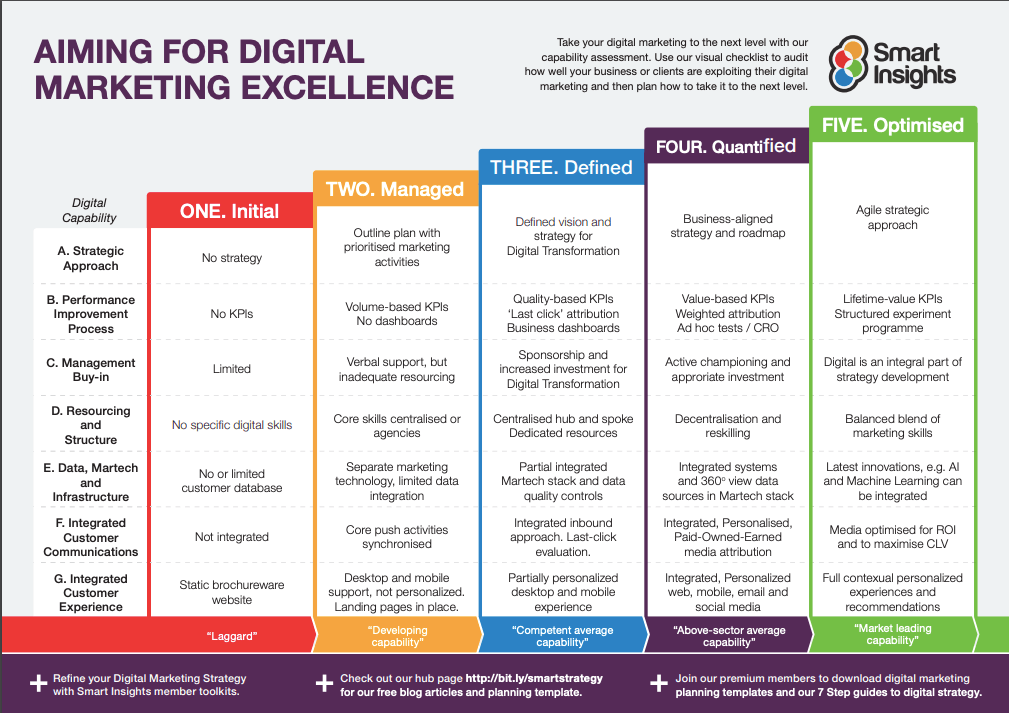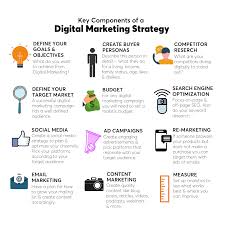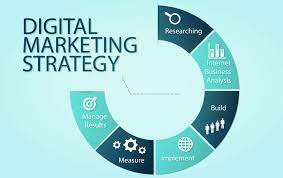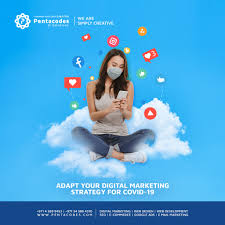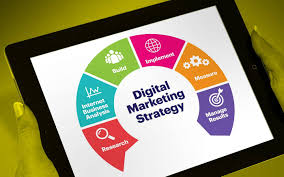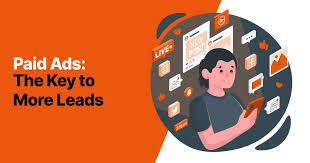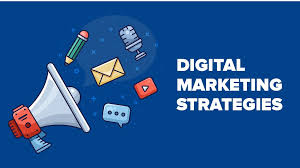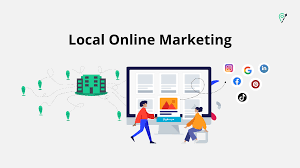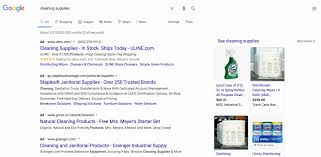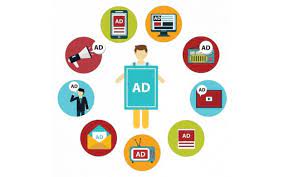The Power of a Successful Digital Marketing Campaign
In today’s digital age, a well-executed digital marketing campaign can make all the difference for businesses looking to reach their target audience and drive results. With the vast array of online channels available, from social media to search engines, a strategic digital marketing campaign can help businesses stand out in a crowded marketplace.
Key Components of a Digital Marketing Campaign
A successful digital marketing campaign incorporates various components to create a cohesive and effective strategy. These may include:
- Search Engine Optimization (SEO): Optimising your website content to rank higher in search engine results pages and attract organic traffic.
- Pay-Per-Click (PPC) Advertising: Running targeted ads on search engines and social media platforms to drive relevant traffic to your website.
- Social Media Marketing: Engaging with your audience on platforms like Facebook, Instagram, and Twitter to build brand awareness and foster customer relationships.
- Email Marketing: Sending personalised emails to nurture leads, promote products/services, and drive conversions.
- Content Marketing: Creating valuable and relevant content such as blog posts, videos, and infographics to attract and engage your target audience.
The Benefits of a Strong Digital Marketing Campaign
A well-planned digital marketing campaign offers numerous benefits for businesses, including:
- Increased Brand Visibility: By leveraging various online channels, you can increase your brand’s visibility and reach a wider audience.
- Targeted Reach: With digital marketing tools, you can target specific demographics, interests, and behaviours to reach the right audience with your message.
- Data-Driven Insights: Digital marketing allows you to track and measure the performance of your campaigns in real-time, providing valuable insights for future strategies.
- Cost-Effectiveness: Compared to traditional marketing methods, digital marketing often offers a higher return on investment due to its ability to target audiences more precisely.
In Conclusion
A successful digital marketing campaign is essential for businesses looking to thrive in today’s competitive landscape. By utilising the various tools and strategies available in the digital realm, businesses can connect with their target audience effectively, drive engagement and conversions, and ultimately achieve their business goals.
Contact us today to learn how we can help you create a winning digital marketing campaign for your business!
Essential Tips for Crafting a Successful Digital Marketing Campaign
- Clearly define your campaign goals and objectives.
- Identify your target audience and tailor your messaging to suit their preferences.
- Utilise various digital channels such as social media, email, and search engines for a multi-faceted approach.
- Create engaging and relevant content to attract and retain the interest of your audience.
- Regularly monitor and analyse key performance indicators (KPIs) to track the success of your campaign.
- Optimise your campaign based on data insights to improve its effectiveness over time.
- Consider incorporating influencer partnerships or collaborations to extend your reach.
- Stay updated with the latest trends in digital marketing to remain competitive in the online landscape.
Clearly define your campaign goals and objectives.
In any digital marketing campaign, it is crucial to clearly define your goals and objectives from the outset. By establishing specific and measurable targets, such as increasing website traffic, generating leads, or boosting brand awareness, you can create a focused strategy that aligns with your overall business objectives. Clear goal-setting not only guides your campaign tactics but also allows you to track progress and evaluate the success of your efforts effectively. This clarity ensures that every aspect of your campaign works towards achieving the desired outcomes, leading to a more impactful and successful digital marketing initiative.
Identify your target audience and tailor your messaging to suit their preferences.
To maximise the effectiveness of your digital marketing campaign, it is crucial to identify your target audience and tailor your messaging to align with their preferences and interests. By understanding the demographics, behaviours, and needs of your audience, you can create content that resonates with them on a personal level, increasing engagement and driving conversions. Customising your messaging to suit the preferences of your target audience not only enhances the relevance of your campaign but also fosters stronger connections with potential customers, ultimately leading to greater success in achieving your marketing objectives.
Utilise various digital channels such as social media, email, and search engines for a multi-faceted approach.
To maximise the effectiveness of your digital marketing campaign, it is crucial to utilise a range of digital channels, including social media platforms, email marketing, and search engines. By adopting a multi-faceted approach that leverages these diverse channels, you can reach a broader audience, engage with potential customers at different touchpoints, and drive better results for your business. Each channel offers unique opportunities to connect with your target audience and deliver tailored messages that resonate with them, ultimately enhancing your brand visibility and boosting your online presence.
Create engaging and relevant content to attract and retain the interest of your audience.
Creating engaging and relevant content is a crucial tip for a successful digital marketing campaign. By crafting content that resonates with your target audience, you can capture their attention, spark their interest, and ultimately retain their engagement over time. Whether it’s informative blog posts, captivating videos, or interactive social media posts, providing valuable content that addresses the needs and interests of your audience is key to building a loyal following and driving meaningful interactions with your brand.
Regularly monitor and analyse key performance indicators (KPIs) to track the success of your campaign.
Regularly monitoring and analysing key performance indicators (KPIs) is crucial in assessing the effectiveness of your digital marketing campaign. By tracking metrics such as website traffic, conversion rates, click-through rates, and engagement levels, you can gain valuable insights into the performance of your campaign and make data-driven decisions to optimise its impact. Monitoring KPIs allows you to identify what is working well and what areas may need improvement, enabling you to adjust your strategies accordingly for better results in achieving your marketing objectives.
Optimise your campaign based on data insights to improve its effectiveness over time.
To enhance the effectiveness of your digital marketing campaign, it is crucial to optimise your strategies based on data insights gathered throughout the campaign. By analysing key metrics such as engagement rates, conversion rates, and audience demographics, you can make informed decisions to refine your approach and maximise results. Continuously monitoring and adjusting your campaign based on data-driven insights allows you to adapt to changing trends, target audience preferences, and market dynamics, ultimately leading to improved performance and increased ROI over time.
Consider incorporating influencer partnerships or collaborations to extend your reach.
Consider incorporating influencer partnerships or collaborations to extend your reach in your digital marketing campaign. By teaming up with influencers who have a strong following and influence in your target market, you can amplify your brand’s message and connect with a wider audience authentically. Leveraging the credibility and reach of influencers can help you increase brand awareness, drive engagement, and ultimately boost conversions. Partnering with the right influencers can add a human touch to your campaign and create meaningful connections with potential customers.
Stay updated with the latest trends in digital marketing to remain competitive in the online landscape.
To stay competitive in the ever-evolving online landscape, it is crucial to stay updated with the latest trends in digital marketing. By keeping abreast of emerging technologies, consumer behaviours, and industry best practices, businesses can adapt their strategies to effectively engage their target audience and drive results. Embracing innovation and staying ahead of the curve in digital marketing can give businesses a competitive edge and help them stand out in a crowded digital marketplace.

